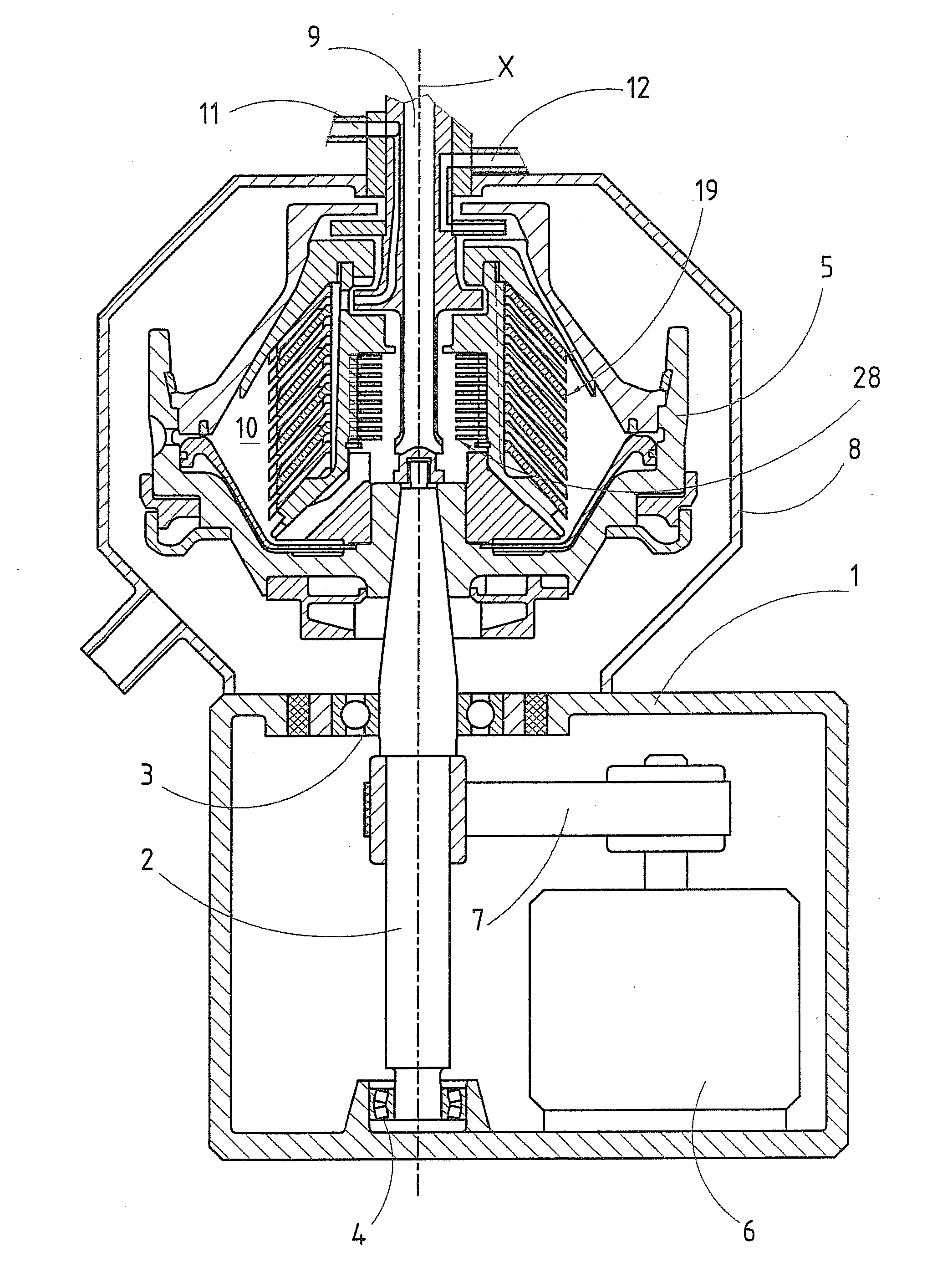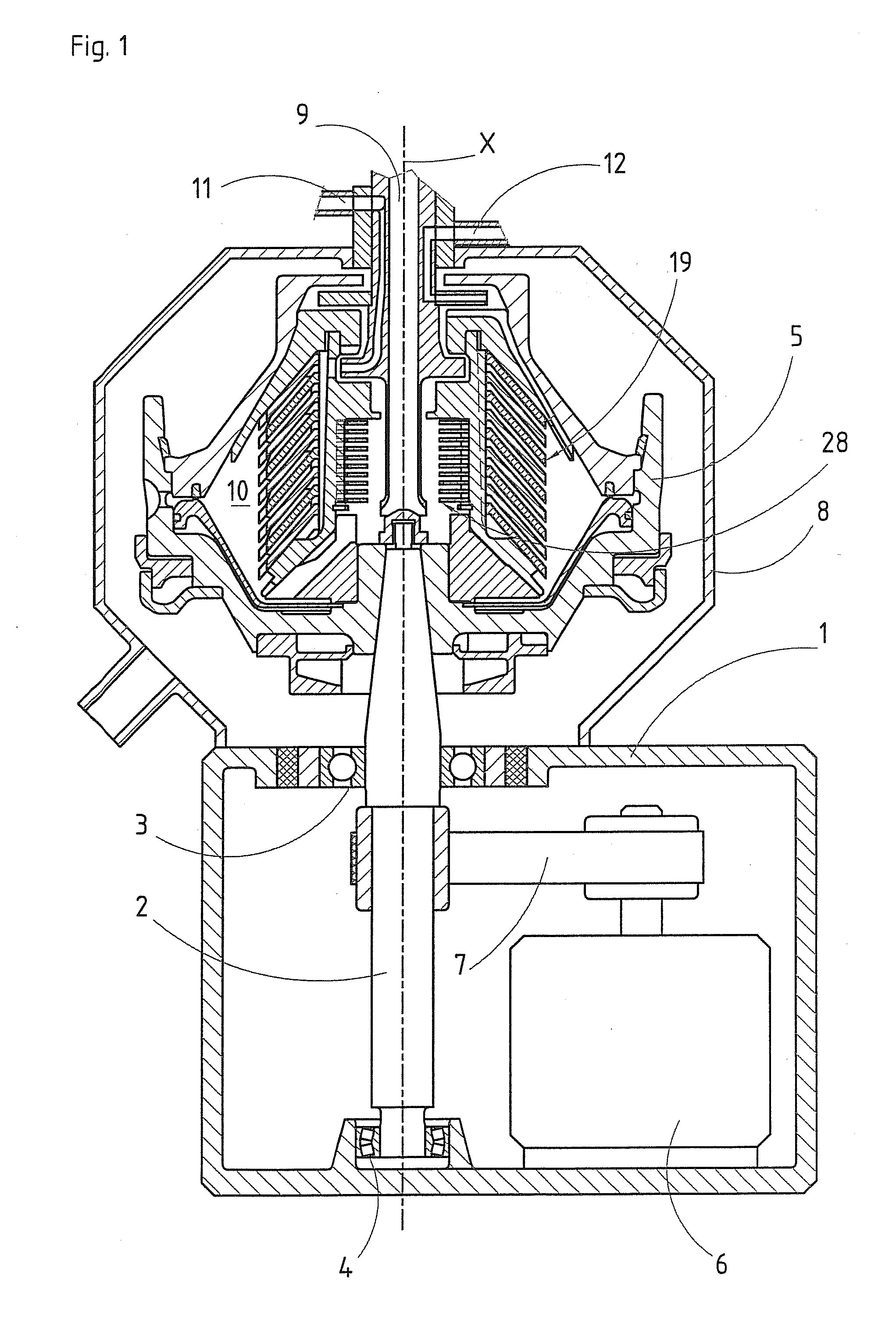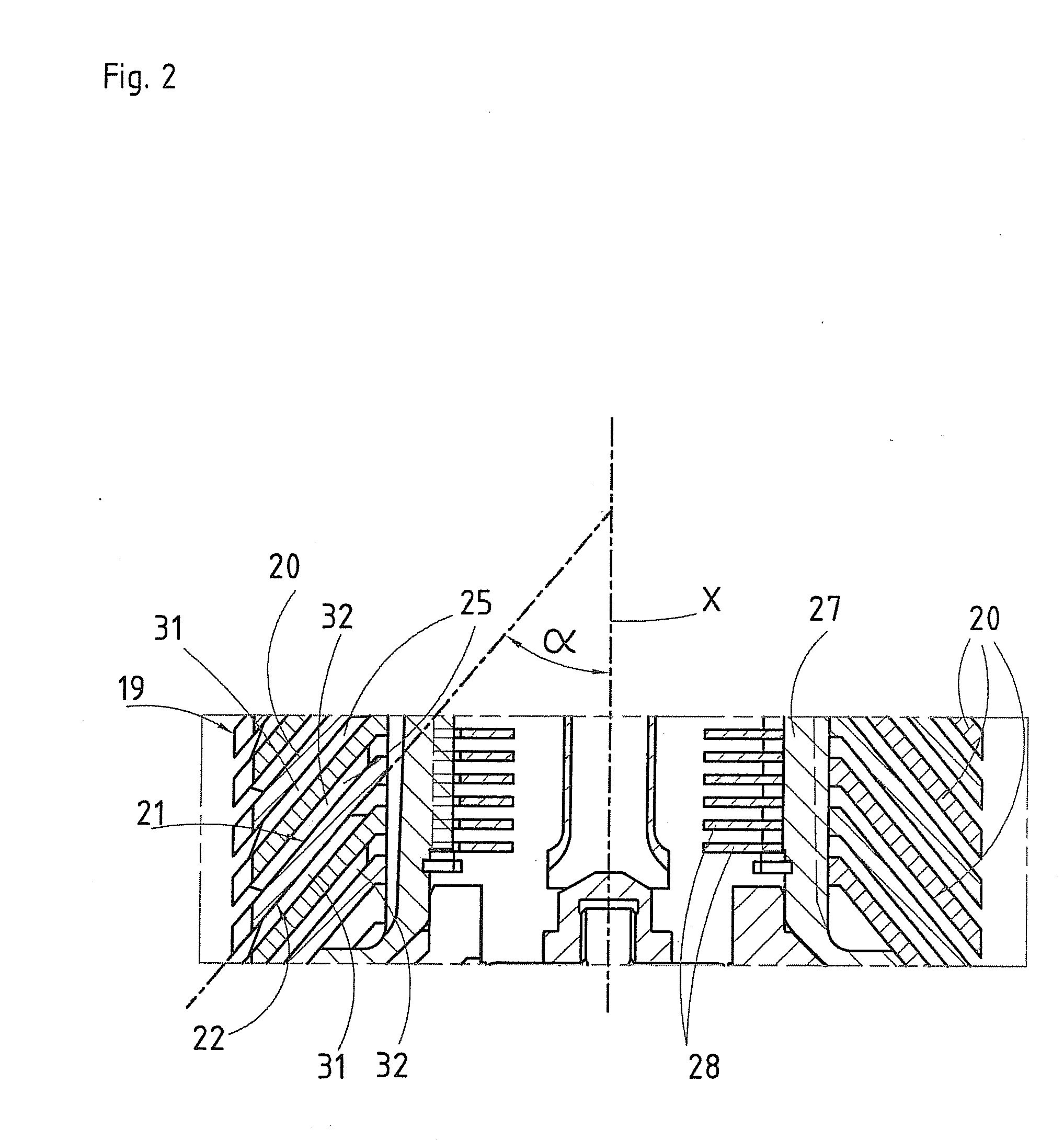Disk package for a centrifuge rotor
- Summary
- Abstract
- Description
- Claims
- Application Information
AI Technical Summary
Benefits of technology
Problems solved by technology
Method used
Image
Examples
first embodiment
[0037]In the separation space 10, there is a disk package 19 which rotates with the centrifuge rotor 5. The disk package 19 comprises or is assembled of a plurality of separating disks 20 which are stacked onto each other in the disk package 19, see FIG. 2. A separating disk 20 is disclosed more closely in FIGS. 3 and 4. Each separating disk 20 extends around the axis x of rotation and rotates around the axis x of rotation in a direction R of rotation. Each separating disk 20 extends along a rotary symmetric, or virtually rotary symmetric, surface which tapers along the axis x of rotation, and has a tapering shape along the axis x of rotation with an outer surface 21, which is convex, and an inner surface 22, which is concave. The tapering shape of the separating disks 20 may also be conical or substantially conical, but it is also possible to let the tapering shape of the separating disks 20 have a generatrix which is curved inwardly or outwardly. The separating disks 20 thus have...
second embodiment
[0052]According to the disk package 19, see FIG. 6, also each second separating disk 20″ may comprise a number of distance members in the form of pressed first and second protrusions 31 and 32, i.e. all separating disks 20 are provided with first and second protrusions 31 and 32. In this case, the separating disks 20 mat be polar-positioned in such a way that a first protrusions 31 of the first separating disks 20′ are displaced in relation to the first protrusions 31 of the second separating disks 20″ in the disk package 19 seen in the direction of the axis x of rotation.
[0053]It is to be noted here that for achieving the above mentioned pre-tensioning in the disk package 19, it is possible to provide the disk package 19 with distance members 25 which can not be deformed and for instance be formed by conventional distance members which are brazed or welded to the separating disks 20, but which are located in a corresponding manner as the first and second protrusions 31 and 32. Such...
third embodiment
[0054]FIG. 7 discloses a third embodiment where the distance members 25 have a spot-like extension. Also in this embodiment, the height of the distance members 25 may vary with the distance of the spot-like distance members 25 from the axis x of rotation. These distance members 25 may advantageously also be configured as first protrusions 31 extending away from the outer surface 21 and second protrusions 32 extending away from the inner surface 22. Each protrusion 31, 32 may advantageously have a continuously convex shape seen in a section transversally to a peripheral direction and transversally to a radial direction. In this embodiment, the contact zone 33 may be defined to form a point abutment, or substantially a point abutment, against the inner surface 22 or the outer surface 21 of the adjacent separating disk 20. The protrusions 31 and 32 are displaced in relation to each other and may be provided at a distance from or adjacent to each other. Moreover, it is to mentioned here...
PUM
| Property | Measurement | Unit |
|---|---|---|
| Shape | aaaaa | aaaaa |
| Width | aaaaa | aaaaa |
| Area | aaaaa | aaaaa |
Abstract
Description
Claims
Application Information
 Login to View More
Login to View More - R&D
- Intellectual Property
- Life Sciences
- Materials
- Tech Scout
- Unparalleled Data Quality
- Higher Quality Content
- 60% Fewer Hallucinations
Browse by: Latest US Patents, China's latest patents, Technical Efficacy Thesaurus, Application Domain, Technology Topic, Popular Technical Reports.
© 2025 PatSnap. All rights reserved.Legal|Privacy policy|Modern Slavery Act Transparency Statement|Sitemap|About US| Contact US: help@patsnap.com



